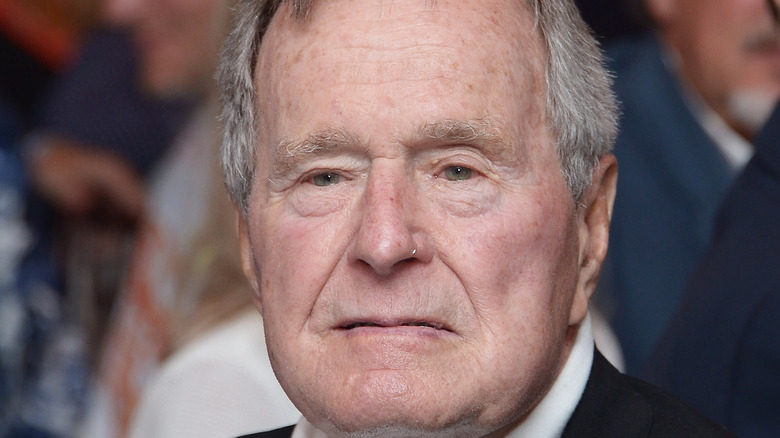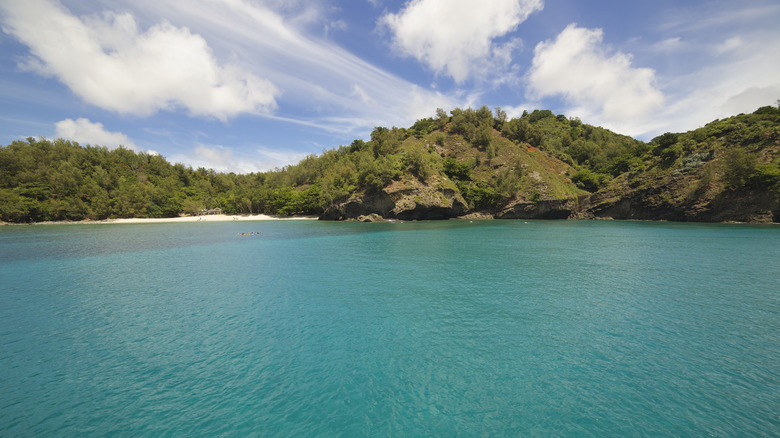How George H.W. Bush Once Evaded Being Eaten By Cannibals
George H.W. Bush generated a hefty amount of controversy in his lifetime. From sexual harassment accusations to vomiting in the former Japanese prime minister's lap, President Bush's reputation has certainly evolved over the years. With far-reaching ties to several industries, the wealthy Bush family has for decades established itself as a prominent political dynasty. And while Bush's rise to vice president and then president was arguably the greatest achievement of the family, this may not have come to pass had events in the skies over the Pacific taken a different turn.
George H.W. Bush joined the Navy in 1942 and first saw action in the Pacific as a torpedo bomber pilot in May 1944, History reports. Months later, Bush again saw action near Chichijima, an island to the southeast of the Japanese mainland. During this engagement, Bush's bomber was hit and he was forced to bail out, Newsweek reports. Despite injuring his head, he managed to survive and board a small raft. While the wind pushed him toward the island and Japanese boats tried to reach him, Bush successfully paddled away and was eventually rescued by an American submarine. But had he been unable to fight the wind, the future president would have been met with an incredibly cruel end.
Sadism drove Japanese officers to cannibalism
Japanese treatment of prisoners from the outset of the Second Sino-Japanese War to the end of World War II was almost universally abysmal (via Independent Australia). POWs and civilians were regularly beaten, executed, worked to death, and subjected to the brutal human experiments of Unit 731. As was the case with Germany, this brutality was born out of an intersection between a belief in their racial superiority and the perception of European encroachment (the latter point has some validity, as Japan was one of the few Asian states to escape European colonization). As the war began to turn after 1942, their callous treatment of their enemies only intensified.
Conditions were often terrible for the defenders on most Japanese-held islands. Not only was food and water regularly in short supply, but the U.S. Navy frequently conducted bombing raids (via Infographics). Conversely, Japanese officers on Chichijima were not subject to rationing and were able to indulge in better nutrition (via 9news). So when they tortured and executed Bush's eight fellow surviving pilots and ordered that their remains be prepared for a meal, it was out of contempt for their enemy rather than hunger. This makes Bush perhaps one of the luckiest surviving figures of the war.

